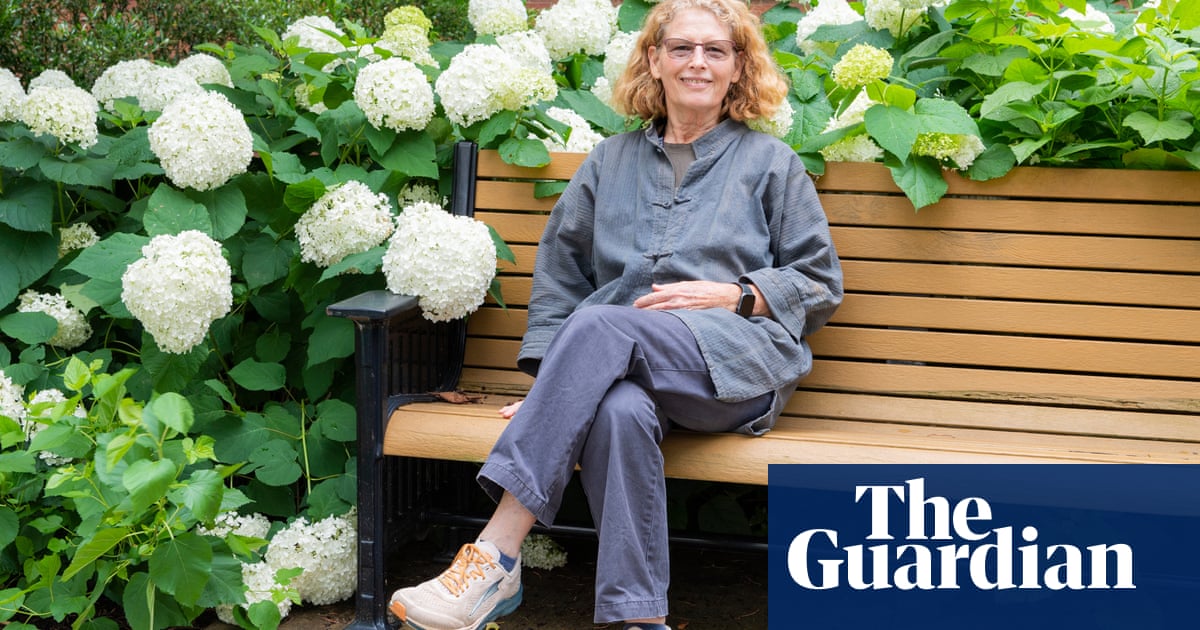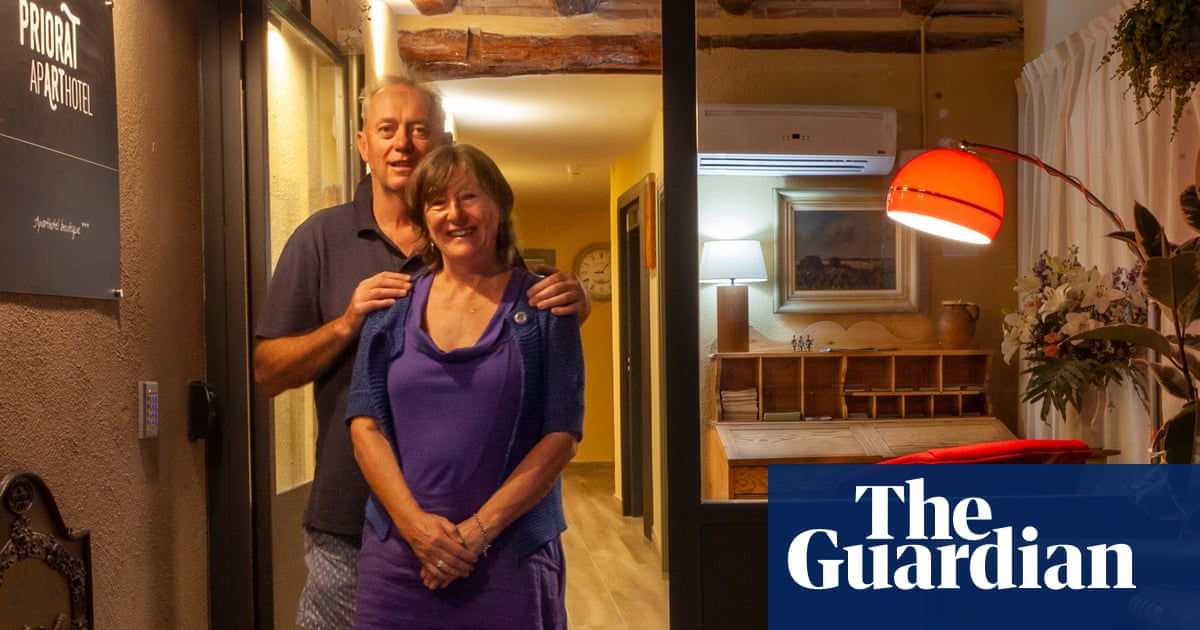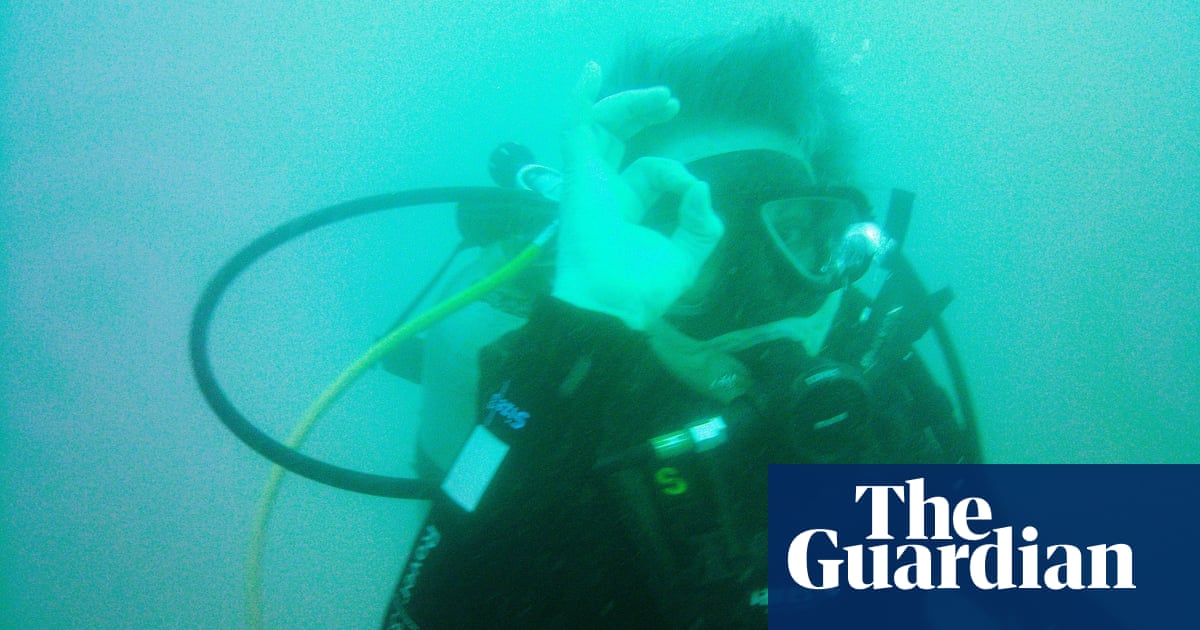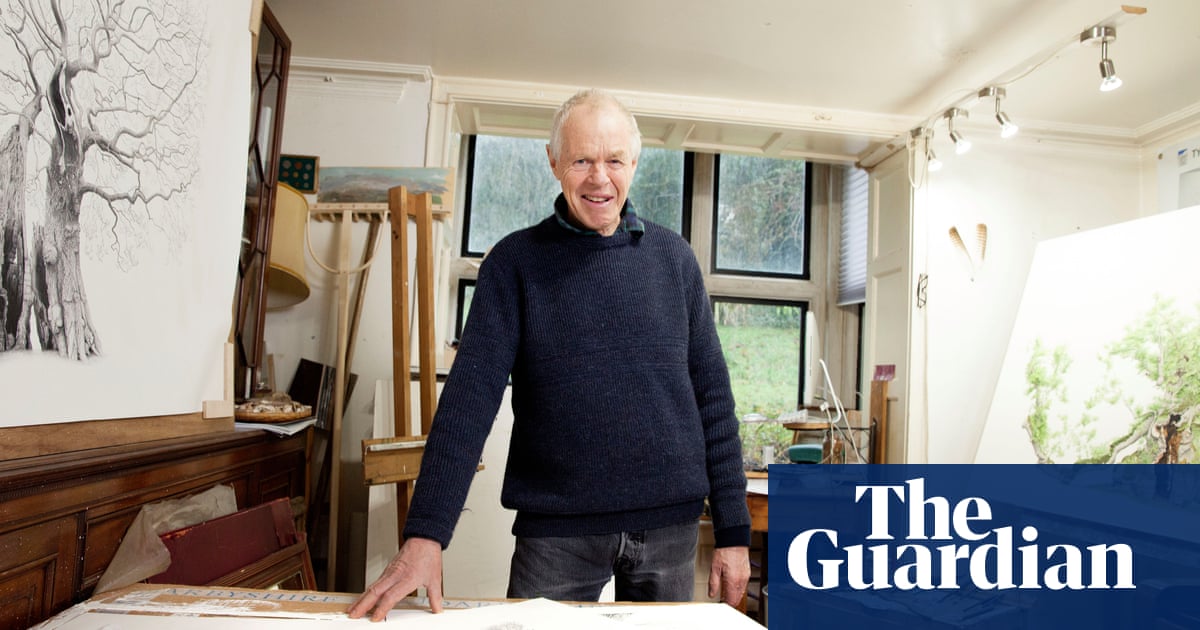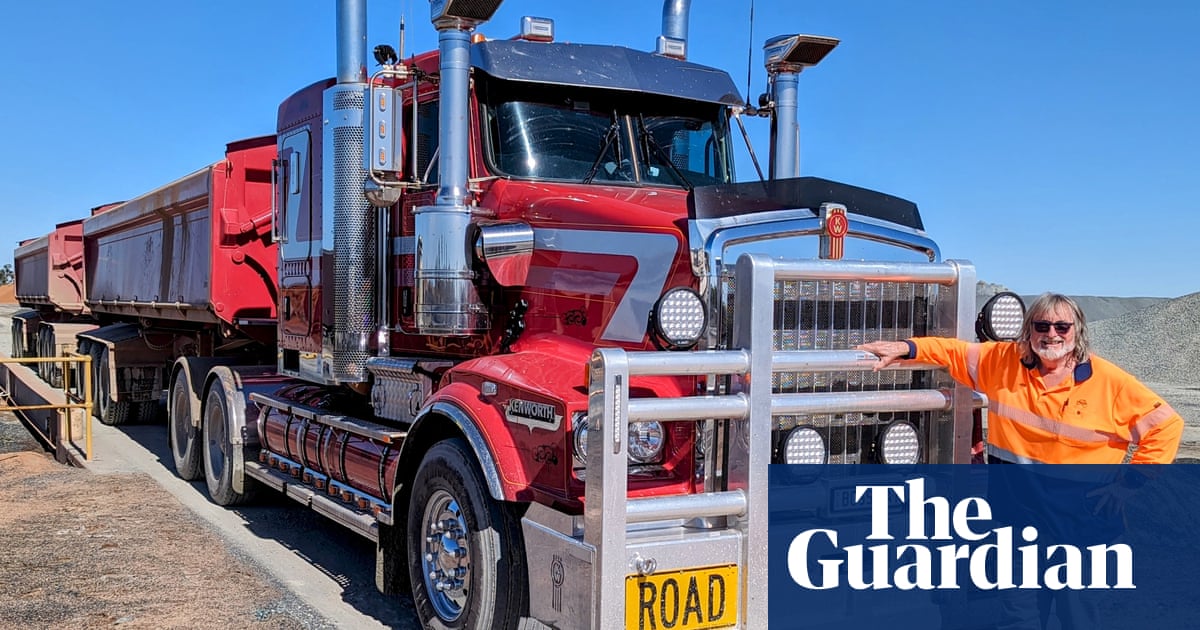
When Greg Ross flew home to Australia following his beloved uncle’s funeral in Auckland in 2008, he looked out of the aeroplane window at the clouds, and by the time he landed in Perth, he had reached a decision: “I thought, I’m going to quit.”
He had realised on the flight that he was burnt out – in his job as acting CEO of a theatre company, and after decades as a marketing executive for prestigious cars. The delayed acknowledgment of burnout, he thinks, “is probably very specific to my age group, the baby boomer thing. We are never allowed to cry, we are never allowed to give up, we’ve got to be tough. You battle within yourself. You think there is something wrong with you – ‘I’m a failure.’”
The song that came to his mind was John Lennon’s Watching the Wheels … “I’m just sitting here watching the wheels go round.”
He quit his job and when his adult children asked what he was going to do, he said, “I think I’ll just drive a bloody truck.” He applied for a job driving a road train - a vast lorry with two or more trailers. Ross wanted to drive “the biggest road trains in the world. Five trailers, 190ft long, 480 tonnes, two engines.”
“The company rang me. ‘Your CV doesn’t say anything about truck driving,’ they said”. Ross had driven much smaller vehicles in his youth and was offered a fortnight’s trial. That was 12 years ago and he has driven road trains ever since. At 72, he has a full-time contract. Now the wheels are going round very differently.
Ross has always loved vehicles, a passion shared with his uncle. He enjoys “making the machine, whatever it is, do what it should do, extracting the performance out of it”. When you get the road train up the hill in the right gear, he says, “You are the machine.”
He works 12 hours a day, 14 days in a row, before having a week off. That doesn’t sound like a typical answer to burnout, but while previous bosses would phone at all hours, “With this truck thing, they don’t own me. At the end of the shift, I turn the key and it’s somebody else’s responsibility.”
Ross loves the solitude. In the cabin, he plays classical music, the Stones, or Leonard Cohen. “Other times, I just want silence. If you’re doing a 300km round trip, the ability to think is wonderful. I’m very happy in my own company. I like who I am and where I’m at.”
Around the time that Ross quit his executive job, Leonard Cohen came to Perth and Ross watched a “sublime, tear-inducing” concert. He blogged about it on a forum and a German woman, Ann-Kristin, got in touch.
They chatted, became friends, then in 2014 were married. “‘You keep telling me you’re over the whole corporate world,’” she said to him once. “‘But you are still going to the hairdresser once a month to get a trim’. I thought, you know what, that would be finally letting go of the whole corporate thing.”
Ross grew his hair. “And I love it.” He blow-dries it every morning. “I let my hair down – I let my hair out, is the best way to describe it.”
Sometimes he runs into people in Perth from his corporate days and they say, baffled, “I know the voice … But it can’t be!”
Ross had thyroid cancer at the turn of the century, and was given three months to live. So his new direction came in the context of what must have felt like a second chance. He says that when he looks back on his corporate days, “I must have been a pain in the arse. Overconfident. What a prick!”
He cycles to keep fit, and hopes to drive road trains for another three to five years. “I’ve seen men suddenly get old,” he says. “You don’t see them for several months and then you see them and they’ve got those rheumy eyes. They get gaunt. Suddenly that alpha male is an old person. You don’t know when that’s coming for you.” But as Ross says, “The glass is always half full with me. And there’s a waiter coming with another bottle.”





